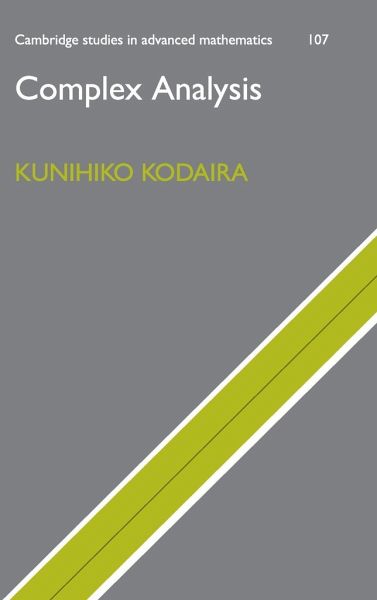
Complex Analysis

PAYBACK Punkte
48 °P sammeln!
Written by a master of the subject, this text will be appreciated by students and experts for the way it develops the classical theory of functions of a complex variable in a clear and straightforward manner. In general, the approach taken here emphasises geometrical aspects of the theory in order to avoid some of the topological pitfalls associated with this subject. Thus, Cauchy's integral formula is first proved in a topologically simple case from which the author deduces the basic properties of holomorphic functions. Starting from the basics, students are led on to the study of conformal m...
Written by a master of the subject, this text will be appreciated by students and experts for the way it develops the classical theory of functions of a complex variable in a clear and straightforward manner. In general, the approach taken here emphasises geometrical aspects of the theory in order to avoid some of the topological pitfalls associated with this subject. Thus, Cauchy's integral formula is first proved in a topologically simple case from which the author deduces the basic properties of holomorphic functions. Starting from the basics, students are led on to the study of conformal mappings, Riemann's mapping theorem, analytic functions on a Riemann surface, and ultimately the Riemann-Roch and Abel theorems. Profusely illustrated, and with plenty of examples, and problems (solutions to many of which are included), this book should be a stimulating text for advanced courses in complex analysis.




